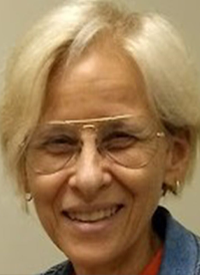Integrative Health Resources for the Oncology RN or Social Worker
There are many educational resources available for nurses who are interested in improving their spirituality and wellness.
Debi Fischer, MSW, BSN, BA, LCSW, RN

The National Cancer Institute, (NCI) defines integrative medicine as a view of treatment that acknowledges the importance of aligning accepted medical practice with alternative approaches such as acupuncture and yoga.1 Most practices are geared toward the patient and can include evidence-based treatments that seek to help treat the entire person. Patients who receive integrative oncology treatments should also receive their standard medications, such as chemotherapy, surgery or radiation. Those receiving integrative oncology may be administered “natural products, and/or lifestyle modifications from different traditions alongside [their] conventional cancer treatments.”2
The goal of integrative oncology is to improve the patient’s quality of life (QOL) and strengthen the patient’s autonomy as they face cancer at all stages of their journey.
Resources aimed at alleviating patient burden, may also help oncology nurses. During a keynote speech at the 48th Annual Oncology Nursing Society Congress, nurse experts explained that burnout continues to represent a problem across health care systems. I can say in my own experience, that burnout is a very real thing, and the COVID-19 pandemic has not helped. Luckily, I continue to find resources online to help nurses and social workers improve strengthen their resiliency and help them cope.
For nurses and social workers, the University of Minnesota Earl E. Bakken Center for Spirituality & Healing also offers a program on integrative medicine with applicable findings for both patients and nurses.3 The vision of this center is to bring together the technical and human aspects of what wellbeing means and to provide an interdisciplinary approach to the field. Some of these resources have to do with burnout and/or building resilience. According to their research, 24% nurses working in intensive care have symptoms of PTSD, and 23% to 31% of primary nurses are drained emotionally. This is known emotional exhaustion.2
A 6-week online program that addresses many workplace issues that nurses deal with on a daily basis:
Surviving the challenges of the health care environment;
- Mindfulness for wellbeing;
- Lifestyle changes
- Working with thoughts and emotions;
- Discovering meaning in work to protect you from burnout;
- Relationships and resilience.
A Higher Level
The center also offers a Master of Arts in Integrative Health and Wellbeing Coaching.4 In 2005, it had the distinction of being the first academic setting to offer a for credit graduate health coaching program called a Certificate in Integrative Therapies and Healing Practices. In 2014, the program was expanded and now offers an MA.
“We are drawing to the program professionals from many fields including nursing, medicine, psychology, social work, and counseling as well as many other disciplines” said Center Founder and Director Mary Jo Kreitzer, PhD, RN, FAAN.4 Those who graduate from this program may be able to apply their takeaways across hospitals, clinics, colleges, neighborhood centers, and even senior centers.
Relevance
All these resources are eye openers for the practicing RN and clinical social worker in the oncology setting who can tap into this wealth of information to improve their own quality of life—which will then improve the quality of care they can offer their patients.
References
- Integrative Medicine. National Cancer Institute. November 28, 2022. Accessed April 20, 2023.https://www.cancer.gov/grants-training/training/resources-trainees/courses-fellowships/integrative-medicine
- Grant SJ, Hunter J, Seely D, Balneaves LG, Rossi E, Bao T. Integrative oncology: international perspectives. Integr Cancer Ther. 2019. doi: 10.1177/1534735418823266.
- Wellbeing & resilience for healthprofessionals online program. University of Minnesota Earl E. Bakken Center for Spirituality & Healing Web. Accessed April 20, 2023. https://csh.umn.edu/
- Master of arts in integrative health and wellbeing coaching. University of Minnesota, Earl E. Bakken Center for Spirituality & Healing. Accessed April 20, 2023. https://csh.umn.edu/
Latest Conference Coverage
2 Commerce Drive
Cranbury, NJ 08512
All rights reserved.


